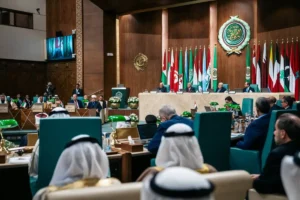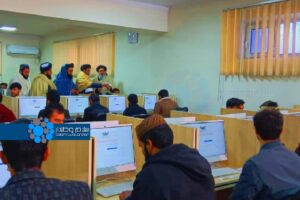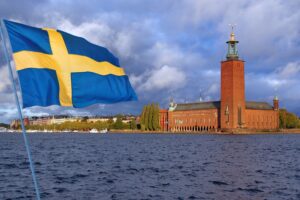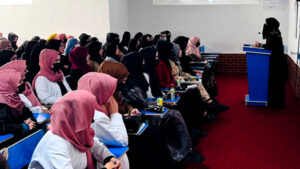KABUL (SW) – While the Islamic Emirate strives to open pathways for international interaction, the United Nations Security Council has extended existing sanctions on the de-facto government for another term.
According to a resolution passed unanimously by the UN Security Council on Friday, sanctions such as the freezing of Afghanistan’s assets, travel bans on Islamic Emirate officials, and arms embargoes will continue for another 14 months.
The Islamic Emirate deems the extension of sanctions by the UN Security Council as “unjust”.
Zabihullah Mujahid, spokesperson for the de-facto government, told Salam Watandar that the UN must end these sanctions to pave the way for Afghanistan’s interaction with countries and the organization. “This benefits no one; the sanctions have not yielded results before. Continuing with failed and unproductive approaches is neither rational nor logical, and these sanctions must end,” he stressed.
Since the Islamic Emirate regained power in Afghanistan, it has been under UN sanctions, yet countries have sought to expand their engagement with the government on a de-facto basis. Several countries have hosted Islamic Emirate officials, including those subject to travel bans.
In this context, some international relations experts believe that the continuation of sanctions on the Islamic Emirate will not change the current situation or the approach of countries toward Afghanistan, and the status quo is likely to persist.
Wali Forozan, an international relations expert, says, “These sanctions will have no impact, and the ongoing interactions between the Islamic Emirate and countries will continue and may even improve.”
Ajmal Zurmati, another international relations expert, notes that the continuation of sanctions on the Islamic Emirate has negatively affected Afghanistan’s economy and will hinder the official recognition of the Emirate. He adds, “Sanctions can question the legitimacy of the government on an international level and further restrict opportunities for dialogue and diplomacy. If the Islamic Emirate does not soften its stance, political isolation may also become an issue.”
Experts criticize the UN Security Council’s dual approach to Afghanistan, stressing that instead of extending sanctions, the organization should focus on a roadmap to help Afghanistan overcome its current state of uncertainty and political deadlock.
Abdul Jabbar Akbari, a political affairs expert, weighed in, “The UN should propose a roadmap for the people of Afghanistan and release their assets to increase trust in the UN and human rights.”
Over the past three years, several countries and international organizations have engaged with the de-facto government without formally recognizing the Islamic Emirate’s rule.






